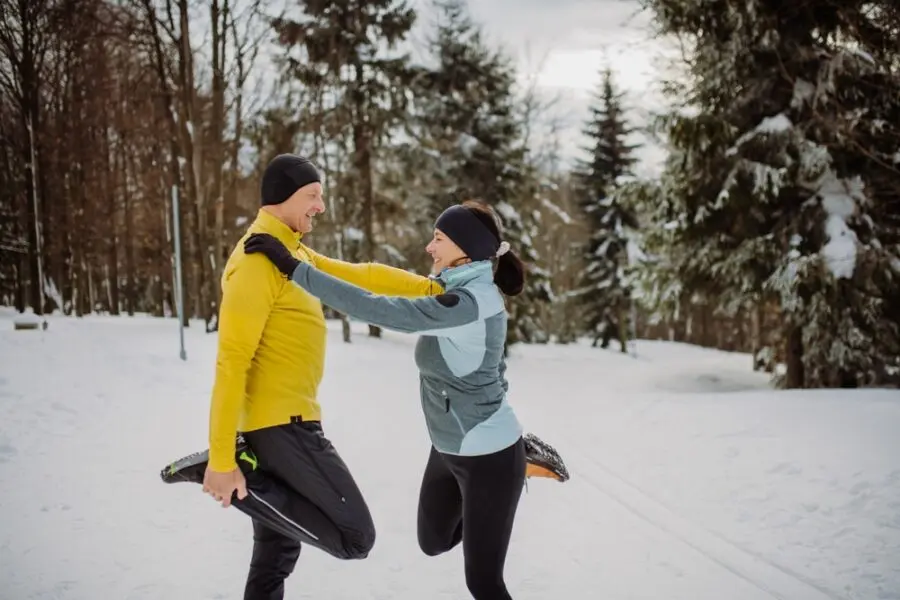
Winter is the perfect season to enjoy outdoor activities that keep both your body and mind active. Skiing, in particular, is a popular way to spend time with friends and family. However, without proper preparation, it can lead to injuries. To ensure you get the most out of your time on the slopes, follow these tips from PiedRéseau podiatrists for warming up and stretching to prevent injuries and enhance recovery.
Why Warm Up Before and Stretch After Skiing?
Warming up before skiing and stretching afterward are simple but highly effective habits. Warming up increases blood flow, lubricates joints, strengthens your heartbeat, and loosens tissues—essentially signaling to your body that it’s about to perform intense physical activity. Stretching afterward promotes muscle recovery, reduces soreness, and can even improve flexibility for future sessions.
Warm-Up Exercises Before Skiing
For an effective warm-up, it’s important to engage your entire body, especially your legs, which will bear the brunt of the effort on the snowy slopes.
Full-Body Warm-Up
Start by activating your upper body with arm circles. Stand tall and swing your arms in wide circles, first forward and then backward, about 10 times each. Place your hands on your hips for balance and swing one leg forward and back, then switch to the other leg.
Hip Warm-Up
Stand with your feet shoulder-width apart and place your hands on your hips. Rotate your hips in circles, first forward and then backward, 10 times each direction. This should feel smooth and pain-free.
Leg Warm-Up
Once your hips are loosened, widen your stance and perform lateral squats by bending one knee at a time, keeping the opposite leg straight. Alternate sides for about 10 repetitions per leg.
Stretching Exercises After Skiing
After skiing, a few targeted stretches can ease muscle tension, reduce soreness, and help your body recover faster.
Quadriceps Stretch
Stand tall and bend one leg backward, holding your ankle with your hand. Pull your foot gently toward your body to stretch the front of your thigh. Hold the stretch for a few seconds, then switch legs.
Calf Stretch
Adopt a lunge position with one leg bent in front and the other extended straight behind you. Keep the heel of your back leg firmly on the ground to feel the stretch in your calf. Hold for a moment, then repeat on the other side.
Hamstring Stretch
Your posterior muscle chain works hard while skiing, so stretching it can prevent back pain. Stand straight, slide one leg forward with your heel on the ground, and keep the leg straight. Slightly bend the other leg and lean forward, resting your hands on the bent leg. You should feel a stretch along the back of the straight leg. Repeat with the opposite leg.
Consult a Podiatrist for Personalized Advice
With these tips, you should feel more prepared to tackle the slopes and recover effectively afterwards. If you find yourself tiring quickly or experiencing discomfort despite taking precautions, the issue might stem from your posture, ski boots, or foot structure. A podiatrist can assess your specific needs and provide personalized advice to improve your comfort and performance. Contact your nearest PiedRéseau clinic today to schedule an appointment.